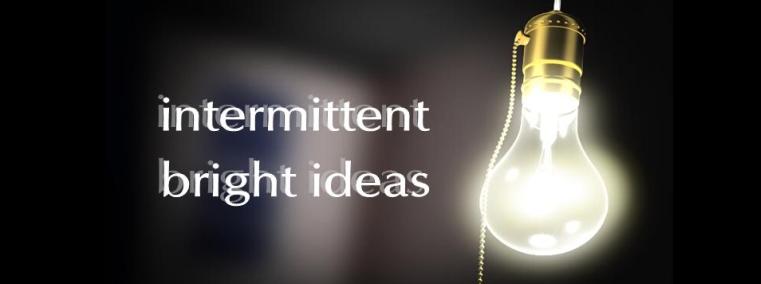Though it hasn't exactly been a huge topic of conversation, The Gospel of Judas has come up on several occassions in the past few weeks. Lee Strobel had some interesting thoughts that I thought were worth posting. You can read more of Lee's stuff (he's all over The Da Vinci Code) by going to his informative site...
Question: I know you're spending a lot of time discussing The Da Vinci Code right now, Lee, but I also recommend that you put some information about the Gospel of Judas in your newsletter. I remember seeing it on the front page of USA Today and my heart dropped into my stomach. It is somewhat controversial (one of the many things regarding Christianity that is these days). It should absolutely be investigated.
Answer: Thanks so much for the question; in fact, we got several along these lines. Here’s the way I look at this issue: Imagine if I were to create a document called The Real Story of John Wilkes Booth, in which I claimed that Abraham Lincoln actually invited Booth to assassinate him in order to ensure he would be fondly remembered by history.
Now imagine that in the year 3821, someone discovers a copy of my document and declares, “Wow, here’s new evidence that casts doubt on Lincoln’s character! Apparently, there was a secret conspiracy between him and Booth!”
Silly? Of course. It’s as ridiculous as claiming that the newly disclosed Gospel of Judas can tell us anything about the historic Jesus.
That’s because the Gospel of Judas was written about a century and a half after the life of Jesus – and it was created amidst a Gnostic community whose distorted version of Christianity was consistently at odds with the historical record.
Disclosed with much fanfare by National Geographic, the Gospel of Judas paints Judas Iscariot as the greatest disciple of Jesus – and even says Jesus invited Judas to betray him. The document is steeped in Gnosticism, which taught salvation through obtaining secret knowledge rather than through Christ’s death and resurrection. Specifically, the Gospel of Judas was produced by a sect called the Cainites, who loved the villains of the Old Testament. Explained scholar Craig Evans, who was part of the National Geographic team:
“They do this because they believe that the god of this world, in stark contrast to the God of Light above, is evil. Accordingly, anyone that the god of this world hates and tries to destroy – such as Cain, Esau, or the people of Sodom – must be good people, people on the side of the God of Light. The Gospel of Judas evidently shares this perspective.”
Oooookay. Not exactly orthodox Christian theology! Clearly, the Cainites were creating stories to fulfill their own biases.
Scholars have dated this particular copy of the Gospel of Judas to 300 to 320 A.D. However, this could very well be the same Gospel of Judas that Irenaeus, a Christian bishop, warned against in 180 A.D. Interestingly, Irenaeus was alerting people to the fact that this was “a fictitious history.” (Appropriately, Irenaeus’ writings were titled Against Heresies.) So here we have a contemporary – and a respected and discerning Christian leader – specifically condemning the Gospel of Judas as being bogus.
Unfortunately, some in the news media propagated reports that the Gospel of Judas might actually shed light on the real Jesus and Judas. One network’s text crawler at the bottom of the screen made this outrageous assertion: “The Gospel of Judas was edited out of the Bible in the fourth century.”
Wow – some newswriter has been taking The Da Vinci Code too seriously!
One problem was that commentators called the Gospel of Judas “authentic” – and, yes, it is authentic in the sense that it is a real Gnostic document dating back to the late second century at the earliest. But people heard the word “authentic” and assumed this meant “authoritative” – which it clearly isn’t.
Evans put the matter into perspective. “No doubt some popular writers will produce some fanciful stories about the ‘true story,’ but that is all that they will produce – fanciful stories,” he said. “Even James Robinson, who is no traditional Christian by any stretch, dismisses the Gospel of Judas as having no value for understanding the historical Judas.”
Thursday, April 27, 2006
Tuesday, April 25, 2006
Monday, April 17, 2006
Easter Thoughts
Just came up for air from a long but exciting Holy Week. Started with a Thursday night family communion time, followed by a Good Friday night viewing of The Passion of the Christ. We bring in a giant screen and open it up to anyone who wants to come. Though attendance is never what I hope it might be, it is a powerful night. This Friday the film ran while a big storm was happening outside, so you were never quite sure if the thunder was part of the film or not!
Sunday was a long day, but good. I guess I'll never fully understand the Christmas/Easter phenomenon of people coming to church in droves on those two holidays. Is there an assumption that they're "covered?" Is there some deep-down hope that lightning will strike and suddenly God will be a legitimate presence in their lives (he already is...just not acknowledged.) Or, is there some mystical, unexplainable magnetic pull about a resurrected Savior that none of us can fully escape, particularly those who have no time or interest for the things of God the other 51 weeks and 6 days of the year? It's just a question.
The story of hope that permeates the Easter event is the foundation upon which millions of Christians have rested for centuries. Has there ever been a time when that message of hope hasn't been more needed?
Sunday was a long day, but good. I guess I'll never fully understand the Christmas/Easter phenomenon of people coming to church in droves on those two holidays. Is there an assumption that they're "covered?" Is there some deep-down hope that lightning will strike and suddenly God will be a legitimate presence in their lives (he already is...just not acknowledged.) Or, is there some mystical, unexplainable magnetic pull about a resurrected Savior that none of us can fully escape, particularly those who have no time or interest for the things of God the other 51 weeks and 6 days of the year? It's just a question.
The story of hope that permeates the Easter event is the foundation upon which millions of Christians have rested for centuries. Has there ever been a time when that message of hope hasn't been more needed?
Subscribe to:
Posts (Atom)










